Drew Myron's Blog, page 25
February 23, 2019
Landscape as Metaphor
 Absence, photo by Drew Myron
Absence, photo by Drew Myron
Keeping Things Whole
In a field
I am the absence
of field.
This is
always the case.
Wherever I am
I am what is missing.
When I walk
I part the air
and always
the air moves in
to fill the spaces
where my body’s been.
We all have reasons
for moving.
I move
to keep things whole.
— Mark Strand
I have absence on my mind. A sort of seamlessness. Land meets sky with no distinction. Someone called this blur an ordinary loneliness.
Somewhere is a center, then a horizon as a single grounding line — of fence or hill or endlessness — holding us in or keeping us out. I'm not sure which.
As often happens, I discover a poem that holds what I feel but can't articulate. Poem as map, as landmark, as grounding and center. Thank you Mark.
Tell me, what's in your (emotional, physical, mental) landscape?
February 12, 2019
Thankful Tuesday: Find, fancy, forget
 Island House by Andrew Wyeth
Island House by Andrew Wyeth
Because it's winter and we need an early and extra dose of gratitude (and Thursday is just too far away), it's Thankful Tuesday. Please join me in a pause and perspective shift by expressing gratitude for people, places, things and more.
On this Thankful Tuesday, I am grateful for:
1. Andrew Wyeth
For this:
A landscape becomes a stage for a crisis of thought.
And this:
"I think anything . . . which is contemplative, silent, shows a person alone — people always feel is sad. Is it because we've lost the art of being alone?"
—from The Art of Andrew Wyeth
2. Unaswerables
The Book of Questions, by Pablo Neruda, is a slim collection I often forget, find, fancy, and forget again. Like a horoscope or fortune cookie, today I dip in and find:
Is it true sadness is thick
and melancholy thin?
and this:
In winter, do the leaves live
in hiding with the roots?
What did the tree learn from the earth
to be able to talk with the sky?
3. Thrum of Winter
People are dying, still and again. In my personal life, my professional life. Even this season — winter — feels like a deep thrum of silence.
Yes, yes, I know, where there is darkness there is light. This is life: births, deaths, hellos, goodbyes, and the great stretch of dailyness in which we are stretched between dishes, laundry, office, errands and chores.
We forget this is living only because it seems like existing — until it ends, and then we cherish the mundane routine as if it were a gripping movie we wish to see just once more. We are actors and audience. We are clapping, then nodding off, in a loop of begins and ends.
I don't want to count the bodies, tally our grief. And yet, we do, don't we? We justify our agony. This is why, and this and this. But grief isn't logical, so the score means nothing, and yet, everything.
4. Maudlin
Am I maudlin? Yes, I am, if only to wake myself, to stir the sadness with something more than understanding, to stir the understanding with something more than tears, to stir the tears with something more than surrender.
5. Rowing
but I am rowing,
I am rowing
though the wind
pushes me back.
6. Blast from the Past
The Mary Tyler Moore Show
I cannot stop watching this landmark television show. I'm on a binge, cheering for Mary Richard's burgeoning career, independence, friendship and fashion. Thank you 1970s.
And that theme song!
Love Is All Around
by Sonny Curtis
Who can turn the world on with her smile?
Who can take a nothing day
And suddenly make it all seem worthwhile?
Well, it’s you girl and you should know it
With each glance and every little movement you show it
Love is all around, no need to fake it
You can have the town, why don’t you take it?
You’re gonna make it after all
How will you make it on your own?
This world is awfully big
And all this time you’re all alone
Well it’s time you started livin’
It's time you let someone else do some giving
Love is all around, no need to fake it
You can have the town, why don’t you take it?
You’re gonna make it after all
You’re gonna make it after all
Your turn: What are you thankful for today?
February 3, 2019
On Sunday: Shift

 Writing doesn’t heal things; it shifts things.
Writing doesn’t heal things; it shifts things.
By writing something down, you move it from
your heart to your hand, and that distance is
often enough to do something else with the
feelings.
January 27, 2019
Envy is Exhausting

Headlined
The chicest people
you've never heard of
wake up with more energy
eat better, sleep longer
feel happier + find
more time for balance.
Some days it feels impossible
to rise, shine, believe
in good and
heartwarm
the world.
— Drew Myron
This is a poem "ripped from the headlines."
Also known as a found poem, a cut-up poem, a warm up poem & an exercise for the writing muscle.
This poem is also a reminder why I should give up fashion/lifestyle magazines.
Tell me, what are you writing?
Envy is exhausting

Headlined
The chicest people
you've never heard of
wake up with more energy
eat better, sleep longer
feel happier + find
more time for balance.
Some days it feels impossible
to rise, shine, believe
in good and
heartwarm
the world.
— Drew Myron
This is a poem "ripped from the headlines."
Also known as a found poem, a cut-up poem, a warm up poem & an exercise for the writing muscle.
This poem is also a reminder why I should give up fashion/lifestyle magazines.
Tell me, what are you writing?
January 22, 2019
Cut Up, Cut Down, Cut Away
What's your trick?
To get out of my head and onto the page, I sometimes need to 'trick' my mind with a Cut Up Poem.
Some writers cut words from magazines and arrange them into lines and stanzas. Others gather, scatter & place their own orphan lines (phrases they wrote but haven't yet placed in a piece) to use as a foundation for a new poem.
Whatever your method — cut up, cut down, cut away, cut back — this approach steers the mind into new territory. The best part of this prompt is the bubble of fresh associations and unexpected themes. You may be surprised where the poem takes you, and even a 'bad' poem is good exercise for the writing muscle.
Traveling, Questions While
Was I born this blistered, all cramp and knots?
Did I grow from scrubby plain to bear
every prickle, thistle and thorn?
Even now, after so many years, I still
travel through noise and discord, winded
and drawn across endless landscape.
Is sadness a habit?
I did not calculate the heart
how heavy this muscle
prone to stutter and stall
how tired and worn.
Who knows why you love
why you can’t and why
you keep trying?
Consider how you carry your
own weather, stormy or steady, how
you study the horizon for every change.
What if you lost your self in the distance
spending your silence on the rise and ache
of this long answerless road?
— Drew Myron
Try it! Share your cut-up poem in the comments section of this blog post.
January 16, 2019
Bone Structure
 The Mill, by Andrew Wyeth, 1959
The Mill, by Andrew Wyeth, 1959
1.
"I prefer winter and fall, when you feel the bone structure in the landscape — the loneliness of it — the dead feeling of winter. Something waits beneath it, the whole story doesn't show."
— Andrew Wyeth
The Art of Andrew Wyeth
2.
Opal died today. Unexpected.
It’s always a surprise to me, though we are in a nursing home and nearly everyone is ill and elderly.
There's not much talk, as if it is routine, and of course it is. And yet, even when expected, every passing feels fresh and unexpected. I haven't found words for this startle and weight — something like sadness but with a puncture that lodges in remote crevices of body and mind.
3.
While hanging the memorial announcement, Ada watches my every move, watches me hang the board, watches me straighten the frame. She does not speak, never speaks. But today, her eyes are steady and from her wheelchair, she reaches for my hand. I bend close and talk quietly.
“Your hair looks nice,” I say. She stares at me, eyes soft.
I try again, “You look good in pink.”
She murmurs, her eyes fixed on mine, as if to speak. But we do not talk, just look into eyes, back and forth, with some tender wordless exchange.
I say goodbye, I’ll see her again, because this is what you say. Because I say it again and again to the old and confused, to the dying. We are accustom to goodbyes and yet, and yet, it always jolts. Maybe I’m not alone in this. Maybe Ada is with me, reaching out to mark a moment, saying every death deserves a pause.
4.
I've started a file: Things to say after a death. There's been so many, I've run out of words.
5.
In the writing group, we pen letters to ourselves:
Dear Younger Me, writes Betty, I wish I could go back and appreciate life more.
6.
“Can I get you anything?” I ask Lucy, who is sitting alone, yawning.
We exchange hellos and she smiles wanly, a sign of her decline. Once buoyant and cheery, she now speaks slowly, if at all, and with much effort.
“There’s no getting,” she says with a half smile, and I think she knows, more than any of us, about these ends.
* Names have been changed to protect privacy.
January 1, 2019
With Resolve

swift — a blackout poem by drew myron
In this new year, let's not make plans, projects or promises.
Let's start here, now, with small measures like this:
Be swift to be kind.
Isn't this everything and enough?
With resolve
 swift — a blackout poem by drew myron
swift — a blackout poem by drew myron
In this new year, let's not make plans, projects or promises.
Let's start here, now, with small measures like this:
Be swift to be kind.
Isn't this everything and enough?
December 26, 2018
Good Books of 2018
Ahhh, don't you love these languid days between Christmas and New Year?
For readers and writers and those who enjoy soft unstructured time, it's an excuse to sink into books without distraction or guilt. And a chance to look back with gratitude at books that have entertained, elevated and sustained.
Here are some of my favorite books I read this year (not necessarily books published in 2018):
FICTION
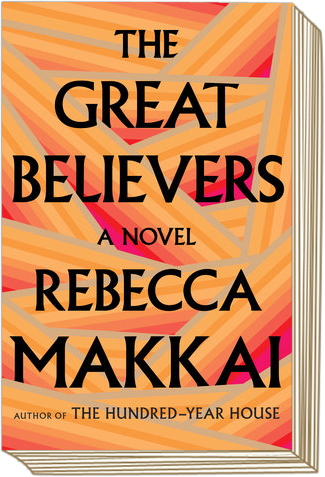
The Great Believers
by Rebecca Makkai
I have just a few chapters left in this page-turner and it just may be my favorite novel of 2018. It's a wrenching and real character study of shame and despair of AIDS in the 1980s.

Little Fires Everywhere
by Celeste Ng
A slow-burning story about a small town thrown into disarray by a court dispute, with a simmering plot on the complicated angst of family love.
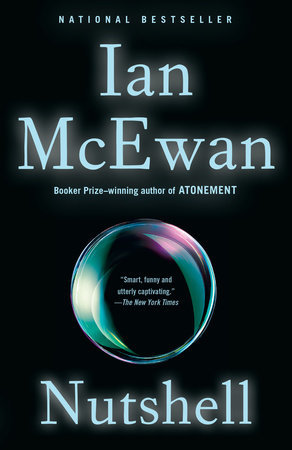
Nutshell
by Ian McEwan
A classic tale of murder and betrayal, and such an odd, delightful, unexpected novel.
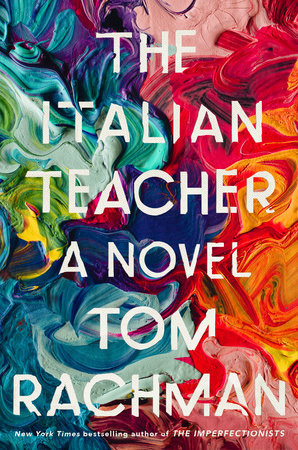
The Italian Teacher
by Tom Rachman
A novel with a slow start but phenomenal build, with unexpected twists and a nicely wistful conclusion. (My favorite of his novels is The Imperfectionists).
MEMOIR
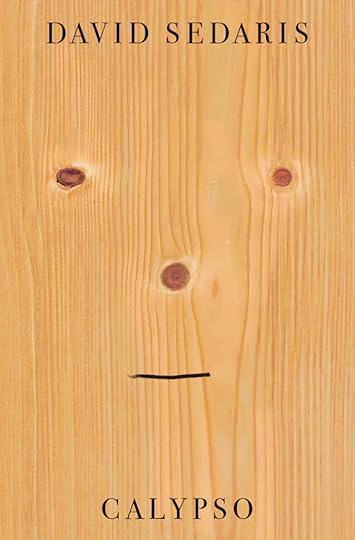
Calypso
by David Sedaris
Here's my new discovery: David Sedaris is best enjoyed by audiobook. An animated performer, Sedaris tells a story with vivid voice and comedic timing that leaves me laughing out loud. I'll never "read" him again. (My favorite of his audiobooks is Let's Explore Diabetes with Owls)
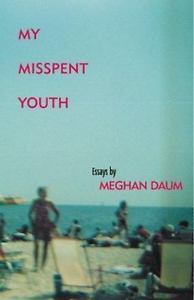
My Misspent Youth: Essays
by Megan Daum
I'm late to the party on this one but glad I caught up. I lived briefly in New York, and while not usually nostalgic, this collection of sharp and honest essays brought back the wonder and ache of those Manhattan days.
ESSAY

Notes from a No Man's Land: American Essays
by Eula Bliss
I'm still not sure if I like this book but months later I keep thinking about it so it definitely stirred me — and isn't that the best kind of reading experience? Reviewer Robert Polito sums my sentiment: " . . . a mix of insistence and quandary, as though she is despairing and pressing on simultaneously."
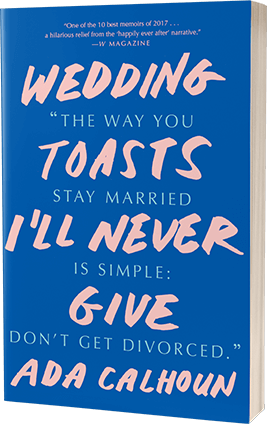 Wedding Toasts I'll Never Give
Wedding Toasts I'll Never Give
by Ada Calhoun
On our first date I told my now-husband that I didn't believe in the institution of marriage. And so, this collection, both sharp and tender, hits me where I live and love. "By staying married, we give something to ourselves and to others: hope. Hope that in steadfastly loving someone, we ourselves, for all our faults, will be loved; that the broken world will be made whole," she writes. "To hitch your rickety wagon to the flickering star of another fallible human being — what an insane thing to do. What a burden, and what a gift."
NON-FICTION
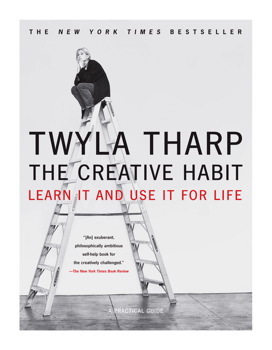 The Creative Habit: Learn It and Use if for Life
The Creative Habit: Learn It and Use if for Life
by Twyla Tharp
From the renowned choreographer, an excellent, practical guide to fostering creativity.
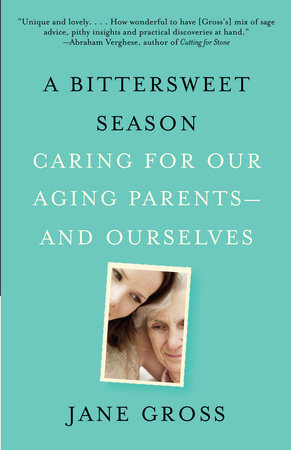
A Bittersweet Season: Caring for Our Aging Parents — and Ourselves
by Jane Gross
A daunting but valuable first-person account from a New York Times columnist navigating the labyrinth of health care and housing choices for her mother. "Wherever I was, I wasn’t where I was supposed to be, and I wasn’t doing what I was supposed to be doing . . . The car was my sanctuary. Before heading home from the Meadowview, with my mother snug in bed, I slumped over the steering wheel, sobbing. Across America, in parking lots like this one, middle-aged daughters do this all the time. I never noticed until I became one of them."
SHORT STORIES
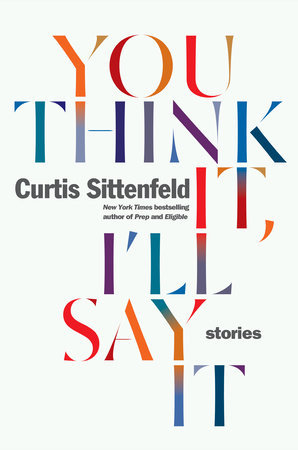 You Think It, I'll Say It
You Think It, I'll Say It
by Curtis Sittenfeld
Months after tearing through this collection, I'm still pierced by the sharp and poignant ways we love and hurt one another. With echoes of Ann Beattie and Lorrie Moore, Sittenfeld, known primarily as a novelist, shines in the short form too.
POETRY

Letter Composed During a Lull in the Fighting
by Kevin Powers
I wasn't looking for poetry when I stumbled across this book, and that makes the discovery all the better. Iraq war veteran Kevin Powers has created a deeply affecting portrait of a life shaped by war — and, frankly, it's a voice of experience I haven't read nearly enough. Read the title poem here.
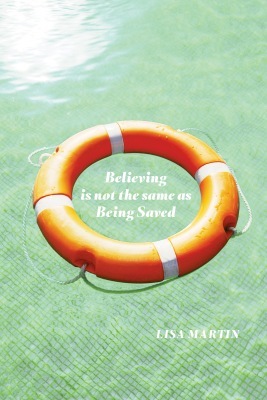
Believing is Not the Same as Being Saved
by Lisa Martin
It's not a perfect book of poetry, uneven in spots and needing an editor to tighten the gems. But there are stunners in this collection that make my heart lurch with recognition.
Remind me, is this how it always goes?
There’s a way of speaking as if the difference
matters, as if the road home is finite—everything
begins and ends somewhere, like your hand
in mine . . . The mind
seeks a place where it can learn to lie down.
— from Map For the Road Home
Your Turn: What books stirred and stayed with you this year?



